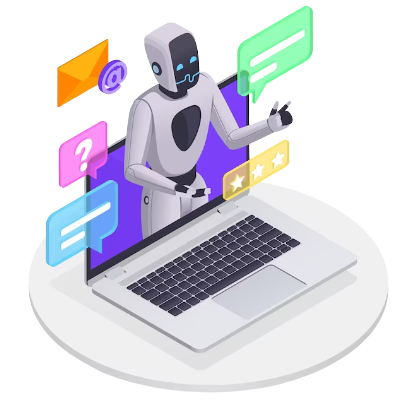AI has the potential to revolutionize technical support by providing more efficient and personalized service to customers. However, businesses must also be aware of the challenges that come with implementing this new technology.
As technology continues to evolve, so does the way we approach customer service and technical support. One of the most promising technologies in recent years has been artificial intelligence (AI). With AI, businesses can now provide more efficient and effective technical support, leading to increased customer satisfaction and loyalty. However, with this new technology comes new challenges. In this blog post, we will explore the impact of AI on technical support, including opportunities and challenges.
What is AI and How Does it Work in Technical Support?
AI refers to the simulation of human intelligence in machines, allowing them to perform tasks that typically require human cognition. In technical support, AI can be used to automate certain tasks, such as answering frequently asked questions or diagnosing issues. This can help to reduce wait times and free up support agents to handle more complex issues. Additionally, AI can be used to provide personalized support to customers based on their specific needs and preferences.

Opportunities for AI
There are several opportunities for AI in technical support, including:
- Improved Efficiency: AI can help to automate repetitive tasks, allowing support agents to focus on more complex issues. This can lead to faster response times and increased productivity.
- Personalization: AI can be used to provide personalized support to customers based on their history and preferences. This can lead to a more positive customer experience and increased loyalty.
- 24/7 Support: With AI, businesses can provide round-the-clock support, ensuring that customers always have access to help when they need it.
- Predictive Analytics: AI can analyze data from customer interactions to identify patterns and predict issues before they occur. This can help businesses proactively address issues and prevent them from becoming more significant problems.
Challenges in Implementing AI
While AI offers many benefits for technical support, there are also challenges in implementing AI in this field. Some of the challenges include the following:
- Lack of Trust: One of the main challenges is the lack of trust in AI systems. Customers may be hesitant to rely on AI for support, especially if they have had negative experiences with automated systems in the past.
- Data Quality: AI systems rely on high-quality data to function effectively. Poor data quality can lead to inaccurate predictions and recommendations, which can negatively impact the customer experience.
- Integration with Existing Systems: Implementing AI in technical support requires integration with existing systems, which can be challenging. Technical teams may need to update or replace existing systems to ensure compatibility with AI systems.
- Cost: It can be expensive to implement it, especially for smaller organizations. The cost of developing and training AI systems, as well as the cost of integrating these systems with existing infrastructure, can be a significant barrier for some organizations.
- Ethical Considerations: AI systems can raise ethical concerns, especially when it comes to decision-making. Technical support teams must ensure that AI systems do not make decisions that discriminate against certain individuals or groups.
The Future of AI in Technical Support
Despite these challenges, the future of AI looks promising. As AI technology continues to improve, it will become more effective in addressing customer needs and resolving issues. Some of the future opportunities include:
- Personalization: AI can help provide more personalized support by analyzing customer data and providing tailored recommendations and solutions.
- Predictive Analytics: AI can analyze historical data to identify patterns and predict future issues. This can help technical support teams proactively address potential issues before they become major problems.
- Automated Issue Resolution: AI can automate issue resolution for common and straightforward problems, freeing up human support agents to focus on more complex issues.
- Improved Efficiency: AI can help technical support teams work more efficiently by automating routine tasks and providing quick access to relevant information.
- Integration with Other Technologies: AI can be integrated with other technologies such as chatbots and virtual assistants to provide a seamless customer support experience.
Best Practices for Implementing AI in Technical Support
To successfully implement AI, businesses should follow best practices such as:
- Start Small: Begin by implementing AI for simple tasks, such as answering frequently asked questions. As technology proves itself, it can be gradually expanded to handle more complex tasks.
- Focus on Accuracy: To ensure that AI provides accurate responses, it is essential to train it on high-quality data.
- Build Trust: Businesses should be transparent about their use of AI in technical support and provide customers with clear explanations of how it works.
- Provide Human Backup: While AI can handle many tasks, it is important to have human support available for complex issues or situations where the customer requests human interaction.
Conclusion
In conclusion, AI has the potential to revolutionize technical support by providing more efficient and personalized service to customers. However, businesses must also be aware of the challenges that come with implementing this new technology. By following best practices and building trust with customers, businesses can successfully implement AI in their systems and improve the overall customer experience.
Experience the power of AI in technical support with Tanbits. Our innovative approach leverages AI to deliver efficient and personalized support to customers, while also addressing the challenges for seamless integration. Discover how our technical support services can elevate your customer experience.











